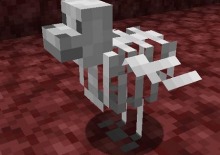Advertisement
Side Effects
Side Effects is a turn-based strategy game built around psychological tension and unpredictable outcomes. Two participants take part in a fictional medical trial, where they alternate turns choosing pills from a shared pool. Each pill may cause healing, harm, or unknown effects, and the consequences are not revealed until after consumption. The challenge lies in reading your opponent, managing limited resources, and surviving longer than the other participant. The game presents no backstory, relying instead on its minimalist presentation to highlight the unease of the choices players must make.
Mechanics of Risk and Control
The core mechanic revolves around decision-making under uncertainty. Pills have randomized effects, and once chosen, cannot be taken back. Players must track what has been taken and try to infer patterns while preserving their own tolerance. Both participants have access to items that add another layer of strategy. These can reveal pill properties, copy previous actions, or interfere with the opponent’s plans. Every round becomes more intense as the options decrease and the pressure builds.
Core Components of the Game
· Turn-based structure with alternating actions
· A shared pool of unknown pills with randomized results
· Individual tolerance bars that decrease based on pill effects
· Usable items that provide tactical advantages or disruption
· Simple visuals that support tension without distraction
Tension and Player Psychology
Each match in Side Effects becomes a psychological contest. The game rewards observation, memory, and calculated risks over speed or reflexes. There are no direct attacks, only decisions that influence survival. Because of the random nature of pill effects, no two matches are the same, and players often experience doubt, hesitation, or misdirection. This design choice creates a slow-building intensity where even small actions carry significant weight.
Side Effects offers a compact and focused experience built around layered decisions and minimalism. While the interface and mechanics are straightforward, the strategic possibilities are deeper than they first appear. The absence of narrative allows players to project their own meanings onto the scenario, turning each session into a quiet contest of logic and instinct. Whether played casually or competitively, the game leaves a lasting impression through its combination of control, chance, and tension.








































































































